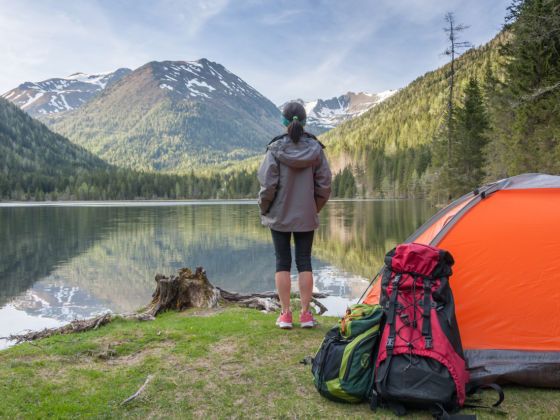Memorial Day is over, and that means summer is unofficially here. With increasingly warm weather comes the desire to get out of the house, have fun, and maybe even pretend that the pandemic was just a winter fluke we really don’t have to worry about any longer. But despite the news of US states and countries reopening to tourism, the virus is not gone.


Camping Is the Lowest-Risk Activity You Can Do This Summer, According to Experts
To make sure you have a good summer while remaining safe, experts have given NPR the lowdown on what activities put you and others at risk of infection and what activities don’t. And, as expected, spending time outdoors with few people will be the way to go this season. Camping especially, pending your level of isolation and familiarity with the other campers, has been deemed the least risky activity for coronavirus infection.
Rebecca Katz, director of the Center for Global Health Science and Security at Georgetown University Medical Center, told NPR, “As far as summer activities go, this is least risky from a virus perspective.” That doesn’t mean, however, that there are no risks at all. “Sleeping in tents together with others [not from your household] can certainly be a setup for transmission,” Katz said, adding that you should make sure that the people you are camping with have been respecting the social distancing and health safety guidelines.
According to experts, other low-risk activities include outdoor exercising and spending the day at a public beach or pool.
“The sheer volume of water will dilute out the virus,” said Dr. Andrew Janowski a pediatric infectious diseases expert at Washington University in St. Louis, “making the water a highly unlikely source of infection.”
Higher-risk activities include going to nightclubs, attending a religious service, and potentially visiting a shopping mall.